© Edm
Russia’s various outrages against the West go on and on, even if their motivation is hard to fathom. Today’s spies seem to spend their time with fraudulent paper: fake IDs, fake documents, fake letters, and reports. With so much paper involved it seems that it’s not so much James Bond as Basildon Bond. Now it has emerged that in February 2023 the UK arrested three Bulgarians on charges of holding false documents, although they had lived in Britain for several years. The Police found forged press cards and special clothing for surveillance operations (does that mean with built-in binoculars or a pocket for sandwiches?), while the suspects were also carrying fake passports and identity documents, not only for the UK but also for France, Italy, Spain, Croatia, Slovenia, Greece, and the Czech Republic. They mixed with ordinary people, exchanging views with their neighbours, one of whom pointed out that it meant they’d be able to inform Putin when there’s a special offer on at the local supermarket. Ready-made borscht in a packet? He’ll be thrilled.
The BBC report that they had been carrying out surveillance operations not only in London but also in Germany and Montenegro, although at the time of writing, they have yet to enter pleas, but they will soon be returned to court to answer the charges. Why? Well, in his book “Overreach”, Owen Matthews quotes the Russian writer Zakhar Prilepin who wrote of his fellow-Russians: “War is our national ideology”. He believed the country should be endlessly at war, which is a view seemingly shared by Vladimir Putin. Zakhar even founded his own political party, devoted to the idea of a belligerent Russia whose destiny it was to purge the world of decadence through war. How such a corrupt country was meant to achieve that is not immediately apparent. Clearly, he was mad. The Russian Duma has passed laws against “foreigners” and these who may have been influenced by foreign ideas (like peace, perhaps?). People stopped talking to each other in public, as the country sank into paranoia. I recommend Matthews’ book as one way that may help the rest of the world to understand Putin’s insane and warlike Russia. It’s very well-written and compelling, if scary. Matthews writes that: “The Ukraine war is the final bloody act of the collapse of the Soviet Union.”
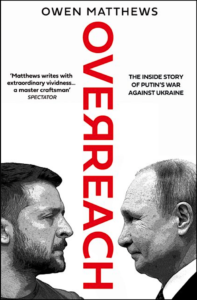
Putin has opened the door to twisting the advances in technology to his deadly and seemingly pointless purposes, using means that may at least advance the cause of science. One problem for Russia is the fact that its opportunities for espionage have dwindled. During the first three months of Russia’s war in Ukraine, no fewer than 450 diplomats were expelled from embassies, most of them based in Europe. Russia’s carelessness in having many of the false identity papers issued from the same office and with similar serial numbers has laid open its technique for setting up spy networks. Russians have become increasingly uncertain about Putin’s new fear-filled Russia, with the daughter of a leading oil magnate asking to move tables twice in a Moscow restaurant because she didn’t like the look of the people at the next table and feared they could be eavesdropping.
It’s getting harder and harder to tell real from computer-generated fake. It’s something we’re going to have to get used to, possibly without having any certain means to differentiate between the two. In security terms, systems exist to exclude (in theory and probably only partially) serious hackers from government websites. Sadly, the spying technology is advancing fast enough to make it very hard indeed to keep up. Artificial intelligence, once the stuff of science fiction, is now in the realm of espionage. It’s not a new thing; ancient enemies spied upon each other, although they didn’t always act upon the information their spies uncovered. The Romans often boasted of not needing intelligence services because they could always win on the battlefield without such things. However, shortly before his assassination a list of the conspirators intending his death, along with details of their plot, was thrust into Julius Caesar’s hand. He failed to read it, perhaps because of his known over-confidence. If he had, he might have stayed alive, and history would have been different. It would probably also mean that one of the finest works of the Elizabethan theatre would never have been written, too. After all, the Romans were a formidable force in battle and more people are believed to have died on the end of a Roman gladius short sword (a Spanish design used by the legionaries) than by any other means, prior to the invention of explosives and projectile weapons.

These days, of course, technology makes espionage much easier, if not necessarily more useful from a tactical point of view. According to Matthews, Putin simply got things wrong; he has made the world less safe. “The Ukraine war made the world a far more dangerous place,” Matthews writes, “as Putin and his propagandists brought the idea of battlefield or even strategic use of nuclear weapons from the realm of the theoretical firmly into the realm of the possible.”
Espionage was probably more dangerous back in the days of Sun Tzu, a Chinese military theorist during the 4th century BC. He wrote about it, setting out his theories in a book, “The Art of War”, that is still read today. His advice was: “One who knows the enemy and knows himself will not be endangered in a hundred engagements.” I don’t think I’d bet on that, although his advice that all combatants should understand themselves and their enemies seems sensible. It is, after all, basic military intelligence. What we are seeing today seems to be as much about embarrassing one’s enemies as actually discovering anything new or useful.
Now it’s emerged that the United Kingdom’s Foreign, Commonwealth and Development Office (FCDO) has been the target of what the BBC called a “serious cyber-security incident”, involving hackers from both Russia and China. They were able to read private emails of staff, so they should know who exactly had lunch or dinner with whom and perhaps glimpse their holiday photos. Will it overthrow a dynasty? Probably not, on balance. But it reveals a worrying trend, even if we always knew that political rivals like to know what each other are up to. The Russian agency that succeeded to the job of the old KGB, of “James Bond” fame, is, according to the UK government, engaged in an historic global campaign “targeting critical national infrastructure.” The UK government has a long list of Russia’s cyber-operations, such as in the UK energy sector, US aviation and, oddly, a Russian dissident in the UK, using sophisticated hacking and what’s called “spear-phishing”. No, I don’t know what that is, either. Former UK Foreign Secretary Liz Truss also sanctioned a Russian defence body for conducting what is called “malicious cyber activity” on a Saudi-owned petrochemical plant, deliberately and dangerously overriding safety override controls. She named a Russian defence ministry subsidiary, the Central Scientific Research Institute of Chemistry and Mechanics (TsNIIKhM), for putting lives at risk.
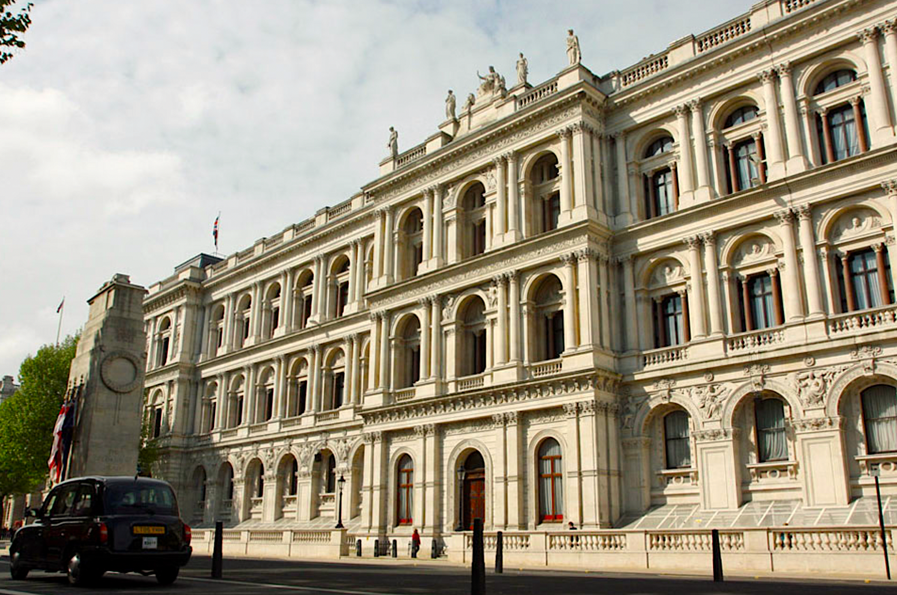
Earlier this year, the UK and US government agencies, together with other allies, exposed historic malign cyber activity by Russia’s Federal Security Service (successor to the KGB). The purpose of the cyber campaign became clear when Vladimir Putin launched his unprovoked war against Ukraine. It had been simple preparation, and it seems to be continuing. Putin seems to have set his sights on various intelligence targets, the choice seemingly displaying relatively little intelligence. According to the UK government counter-espionage services: “The National Cyber Security Centre (NCSC) assess it is almost certain that the FSB’s Centre 16 are also known by their hacker group pseudonyms of ‘Energetic Bear’, ‘Berserk Bear’ and ‘Crouching Yeti’, and conducted a malign programme of cyber activity, targeting critical IT systems and national infrastructure in Europe, the Americas and Asia.” It strikes outside observers as more like simple nosiness that useful espionage, but Putin’s motives have never been very clear to anyone apart from himself.
The hacker groups themselves, despite their silly names, have been indicted by the FBI for targeting the various safety systems at the Wolf Creek nuclear power plant in Kansas. They were behind an attempted attack in 2017 that appears to have had little or no effect. The Foreign Secretary of the time, Liz Truss, said: Russia’s targeting of critical national infrastructure is calculated to be dangerous. It shows Putin is prepared to risk lives to sow division and confusion among allies.” I don’t imagine that his willingness to put lives over here at risk will come as much of a surprise. “We are sending a clear message to the Kremlin,” Truss told the media, “By sanctioning those who target people, businesses, and infrastructure. We will not tolerate it. We will continue to work together with our allies to turn the ratchet and starve Putin’s war machine of its funding and resources.” Of course, Western agencies have also been accused of espionage. In our complicated political world, it’s inevitable, and perhaps even necessary, on occasion, even though it’s a dirty and unpleasant business.
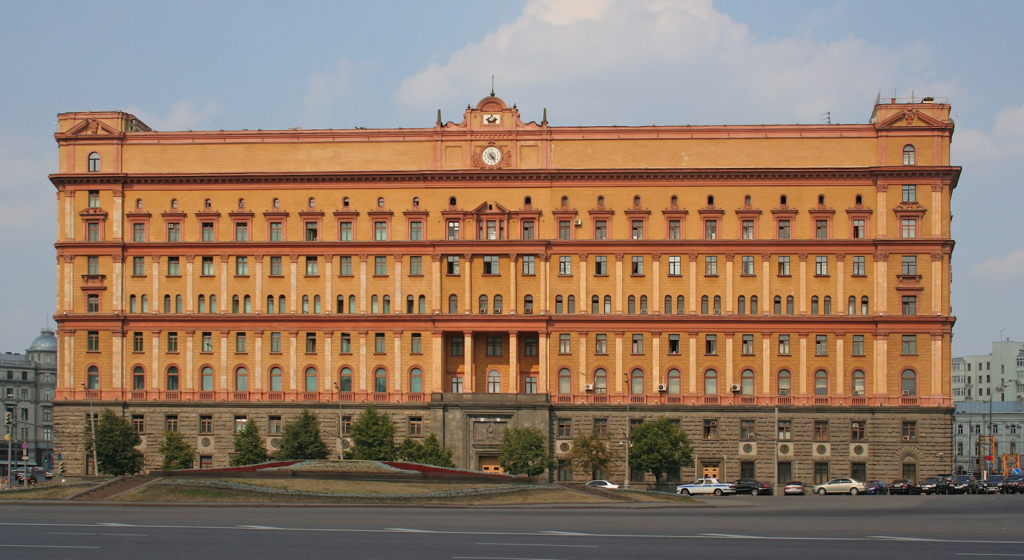
| STOPPING THE ROT?
The FSB’s long raft of malign cyber activity includes the targeting of UK energy companies, the sustained and long-running scanning of networks engaged with the US aviation sector, together with other important US targets as well as the UK’s energy sector. It even involves posing as part of the Russian Federal Tax Service to facilitate so-called “spear-phishing” attacks against Russian nationals who are not in full and compliant agreement with Putin’s apparent wish to take over the world. Russia has also tried to “spear-phish” the press secretary of Mikhail Khordorkovskiy, the exiled Russian businessman, oligarch, and opposition activist, now residing in London and a long-term critic of Putin. The FSB agents have also been monitoring the website Khordorkovskiy set up to expose corruption within the Russian government. There is, of course, quite a lot; Putin is not an honest man; he’s an ambitious crook who will stop at nothing to prevent any form of criticism.
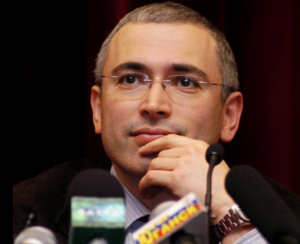
Inevitably, Western nations are reacting to Putin’s dreams of empire by trying to turn them into nightmares instead. Current UK Foreign Secretary James Cleverly, for instance, has announced 25 new sanctions aimed at blocking the supply of foreign military equipment to Putin’s forces. The latest list includes businesses and individuals in Turkey, Dubai, Slovakia and Switzerland who have been helping Russia’s illegal military operations. The UK is also taking on Iranian and Belarussian support for the Kremlin’s war machine. The sanctions list includes three Russian companies that have been importing vital electronic equipment, as well as 22 individuals and businesses. Among those on the sanctions list are two companies based in Turkey – Turkik Union and Azu International – which have been exporting microelectronics to Russia of a kind seen as essential to Russian military aggression in Ukraine. Dubai-based Aeromotus Unmanned Aerial Vehicles Trading LLC is listed as supplying Russia with drones and their components. Slovakian individual Ashot Mkrtychev is named for attempting to set up an arms deal between Russia and the Democratic People’s Republic of Korea (DPRK), as well as Anselm Oskar Schmucki, a Swiss national working in the financial services sector, including as Chief of the Moscow Office of DuLac Capital Limited. The UK has also issued sanctions against three Russian companies operating in the electronics sector for helping to procure UK-sanctioned western microelectronics that Russia needs to maintain its aggressive actions against Ukraine.
Cleverly told the media that his “landmark action” will further diminish Russia’s ability to pursue its war. From the UK’s perspective, this is the biggest-ever sanctions action on military supplies and third countries. When she was Home Secretary, Liz Truss told the media: “Russia’s targeting of critical national infrastructure is calculated and dangerous. It shows Putin is prepared to risk lives to sow division and confusion among allies.” This may not come as much of a surprise to anyone.
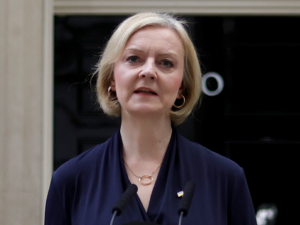
Putin and decent behaviour never did go together, somehow. Truss set out the UK’s position as Putin continues to seek ways to wage war: “We are sending a clear message to the Kremlin by sanctioning those who target people, businesses and infrastructure. We will not tolerate it. We will continue to work together with our allies to turn the ratchet and starve Putin’s war machine of its funding and resources.” We should remember , however, that he still has some very wealthy and totally immoral friends.
Russia’s access to what sounds like a lot of very dull and uninteresting email exchanges seems to have come from a staff member accidentally downloading a piece of malware. The Foreign Office didn’t tell the world straight away, nervous that dangerous information may have been divulged, but it seems that it hadn’t been. In fact, the malware in question failed to give the Russian hackers access to anything sensitive. They have, however, been able to access correspondence from ambassadors or diplomats positioned abroad as long as it was not marked as “classified”. So, not much danger it seems, although any such breach is embarrassing, of course. It’s possible, however, that data on millions of voters may have been revealed, even if that in itself shouldn’t be too big a worry. For instance, it’s not believed that the release of such data could in any way influence the outcome of an election.
It looks as if Russia wasn’t alone in hacking into UK government websites: the Chinese have been at it, too, which means that a lot of UK companies have been compromised. Reports suggest that Chinese hackers have also accessed Japanese websites. In fact, it’s now thought that Chinese hacking has enabled Beijing to keep an eye on Tokyo for several years. Former British Foreign Secretary Dominic Raab reacted quite quickly to the affair: “The attack was highly likely to enable large-scale espionage, including acquiring personally identifiable information and intellectual property.”
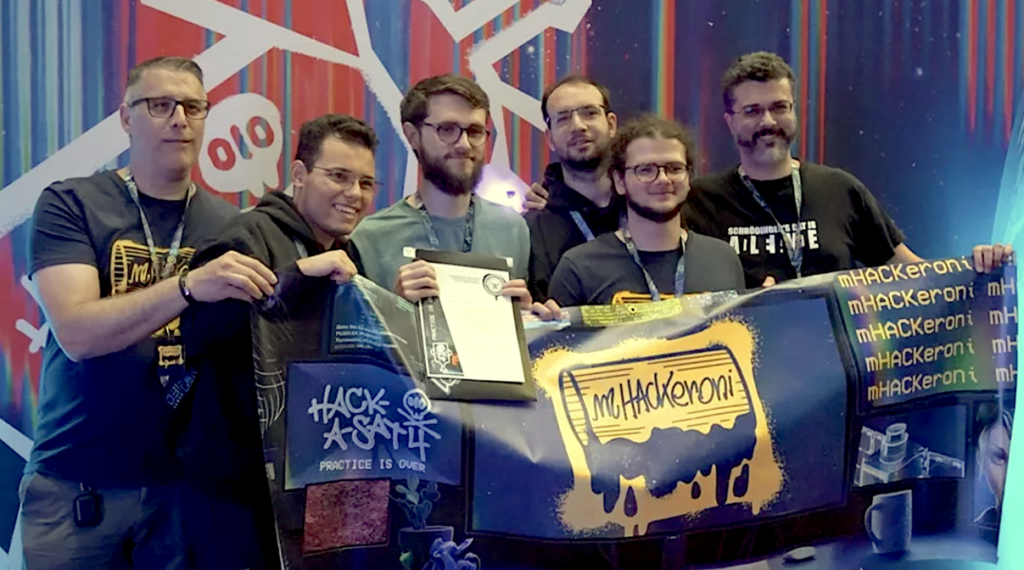
At the time of the attack, the UK quickly provided advice and recommended actions to those affected and Microsoft said that in just a few months some 92% of customers had successfully installed patches against the vulnerability. A lot of research is currently going into how best to protect satellite systems from hackers with evil intent. Five teams of hackers were encouraged to make a concerted attempt to gain access to a satellite with the aim of tightening up security. It’s serious stuff: it’s known that China is developing capabilities to “deny, exploit or hijack” enemy satellites, according to a classified intelligence report among the dozens leaked this spring by an Air guardsman and reviewed by the Financial Times. The U.S. military also uses data from satellites to guide many of their munitions, to position mobile troops and to gather intelligence.
| FEELING HACKED OFF?
Russia seems very keen to find ways to take over networks and to control various communications. It infiltrated an American satellite system and took control of some 45,000 modems as soon as it launched its invasion of Ukraine. The company involved says it still doesn’t know how it was done, but it expected them to come back for more. Now the people behind a competition, organised by the telecommunications company Viasat, seeks to find out who are the best hackers and how they achieve their ends. The competition is called “Hack-a-Sat”, of course.

The idea is to tap the brains of those who really have the skills required. It’s going on all the time, according to the AP news service. Suspected state-backed Chinese hackers used a security hole in a popular email security appliance to break into the networks of hundreds of public and private sector organizations globally, nearly a third of them government agencies, including foreign ministries, according to the cybersecurity firm Mandiant. “This is the broadest cyber espionage campaign known to be conducted by a China-nexus threat actor since the mass exploitation of Microsoft Exchange in early 2021,” said Charles Carmakal, Mandiant’s chief technical officer. Mariusz Kamiński, Minister of the Interior and Administration of Poland, told the media that the ABW (ISA – Internal Security Agency) together with the police identified and detained two Russians who were distributing propaganda materials on behalf of the Wagner Group in Kraków and Warsaw. It’s not the only instance of pro-Russian activities; in June a Russian hockey player was arrested in Poland for spying and later a Belarussian was also held for conducting acts of espionage on Russia’s behalf.
The UK has similarly come under attack. It was reported in August that a cyber attack potentially affecting millions of British voters had been detected and that it could be part of what it called “a major espionage operation”, in which hackers had accessed UK voting registers. The attack had been made in August 2021 but wasn’t discovered until October 2022 (which is not very reassuring for those of us who live in the UK). It means the hackers could have accessed the names and addresses of anyone who was registered to vote in the UK between 2014 and 2022, including those registered to vote overseas. James Sullivan, the Director of Cyber Research at the Royal United Services Institute, said that in view of the way in which the attack took place over such a long period and that the information thus garnered was not financially sensitive suggests it was perpetrated by a state actor.

According to The Times newspaper, the ten-month long inquiry into the hack showed evidence of Russian involvement. Sullivan told the “I” newspaper: “All states spy and this seems like a major espionage operation, and that impacts on the mere fact that they are interested in our electoral processes, they are willing to interfere – they are sitting in this network looking for other opportunities to move laterally into other networks.” Why any country, however hostile, would think it worthwhile to set up such an elaborate network remains a bit of a puzzle. Sullivan believes it’s intended to shake public confidence, because of the way that such information can assist in criminal activity. He believes it could facilitate fraudulent contacts by people who apparently know a lot about whoever they’re calling and that this could aid in the pursuit of crime. If somebody telephones you and seems to know a lot about your immediate circumstances, you may be more inclined to reveal personal data or to buy from that person. Anything that shakes public confidence in their government’s ability to deter criminality serves the interests of that country’s enemies. As Sullivan explained: “the more information you know about somebody, the more confidence you could get from that person.” The Electoral Commission has been accused of waiting too long before admitting the hack. Its excuses, such as “having to go through the right procedures” look a bit limp. The identity of the hackers is not currently known, although the finger of suspicion points towards Moscow.
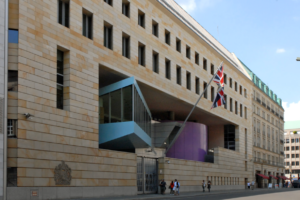
What may puzzle many in the UK is why a British Embassy security guard in Berlin, David Smith, developed such a profound hatred for his own country that he volunteered to spy for Russia, having developed an enormous admiration for Putin. At his trial at the Old Bailey, it was alleged that he received substantial amounts of money from Russia, which he has always denied, claiming it was a form of “revenge” against his employer, whom his did not like. Certainly, he admired Putin, publicly stating his hatred for NATO, the EU, Britain and the United States and having posters of Putin in his locker, one of them showing a cartoon drawing of Putin, armed with a bayonet, dragging Angela Merkel by the hair. He was jailed for thirteen years. It seems possible that his admiration for Putin’s Russia had more to do with Smith’s Ukrainian wife deserting him than the region’s politics. His flat contained a Russian flag and also Second World War NAZI uniforms. A sting operation by British security revealed that he had stored photographs of staff and security measures at the British embassy with the aim of passing them on to Russia. According to The Guardian newspaper: “A draft letter addressed to a military attaché at the Russian embassy, dated May 2020, was also found in which Smith appeared to offer Moscow a book classified as ‘sensitive’ while requesting anonymity, the court heard.” His 13 year prison sentence was inevitable.
There has been considerable criticism of the UK’s lax attitude towards Moscow’s assets, with one of them having used the government’s scheme aimed at helping Ukrainians to set up home – luxuriously, in this case – in the British capital. Posing as a Ukrainian businessman, the man – who has not been named so far – is suspected by the FBI of being an agent for Russia’s FSB spy network. He fled to London from Ukraine early in February last year and his family has since been able to join him. It’s becoming clearer that Russian spy networks have been able to utilise UK banking services to launder dirty money. The house being used by the FSB agent also provides a home for other pro-FSB agents (one of whom denies knowing him at all). The UK government is aware of the dirty dealings and the chair of the Foreign Affairs Committee, Conservative Alicia Kearns has said: “The Home Office should by now have completed an investigation into the suspected FSB agent and taken action.” She added: “Europe is at war financed by Russian kleptocrats. If not now, then when are we going to clear out ‘Londongrad’?”
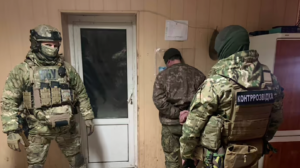
The suspected FSB agent is a Ukrainian businessman who made his fortune through various Russia-based businesses. He is suspected of large-scale financial crimes. Since the start of Russia’s unprovoked invasion of Ukraine, the UK points out that it has sanctioned more than 1,600 entities and individuals, including 29 banks with assets worth £1-trillion (€1.16-trillion), 129 oligarchs with a combined net worth of more than £145-billion (€168.5-billion) and more than £20-billion (€23.24-billion) in UK-Russia trade.
It’s very clear that Russia still sees espionage as a legitimate form of warfare, along with financial criminality. It’s quite probable that other countries hold similar attitudes. “It is only the enlightened ruler and the wise general who will use the highest intelligence of the army for the purposes of spying, and thereby they achieve great results,” wrote Sun Tzu, who lived during the Eastern Zhou period of 771 to 256 BCE. Some things take a very long time to change, if they ever do.

